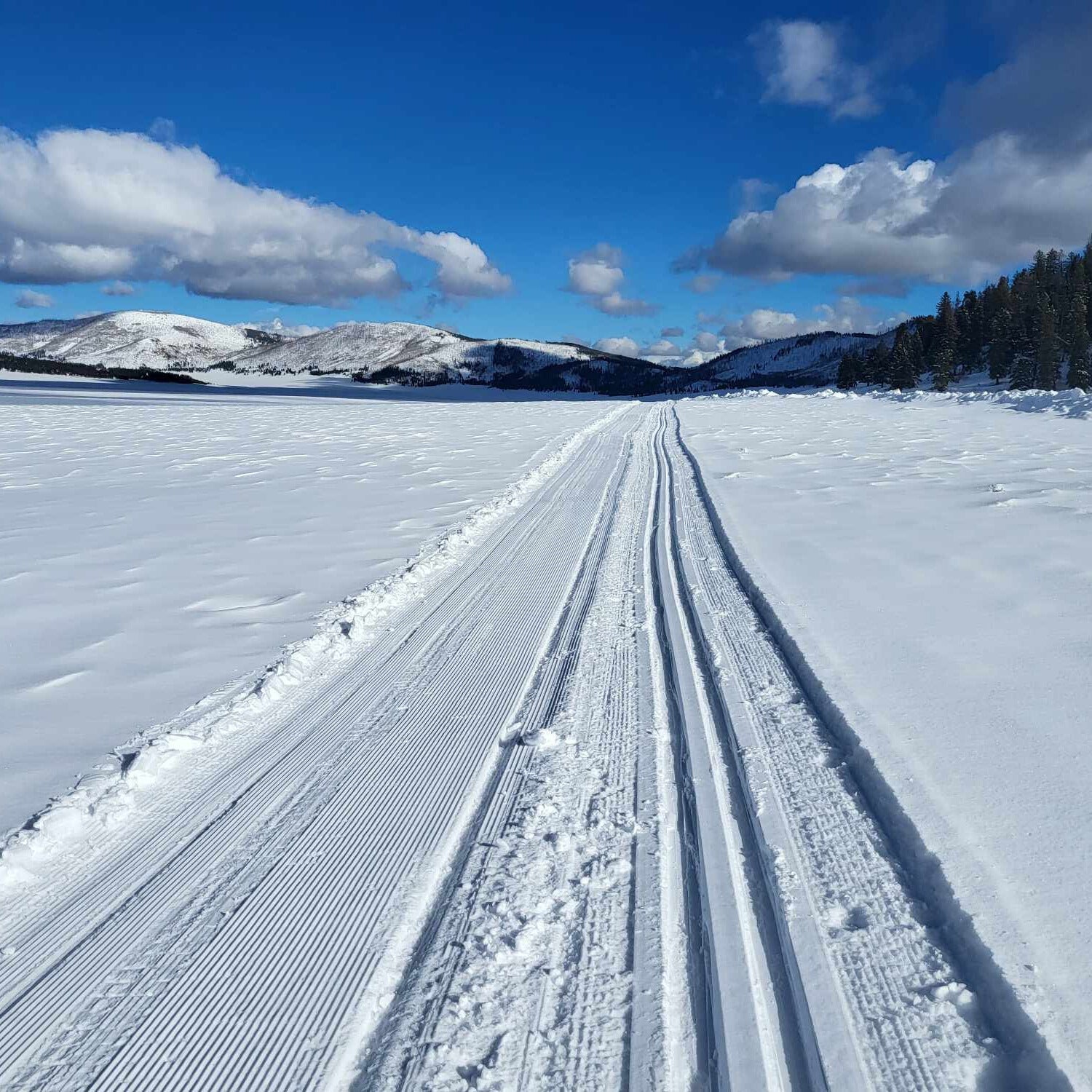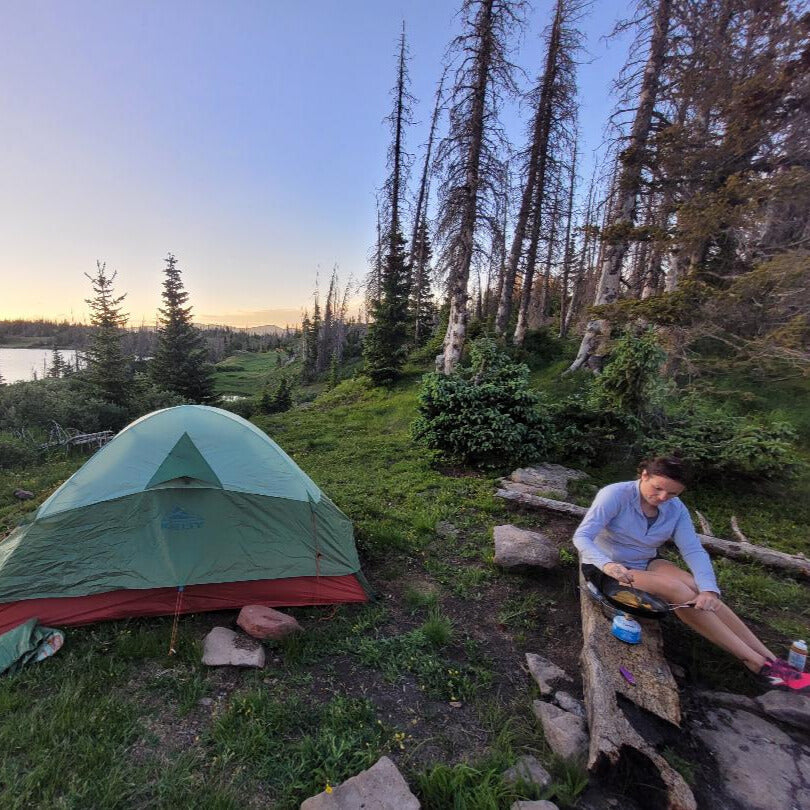Your Cart is Empty
accepting gear drop offs Mon-Sat 10am-5pm. No Consignment acceptance on Sundays.
accepting gear drop offs Mon-Sat 10am-5pm. No Consignment acceptance on Sundays.

In J.B Mackinnon's book, "The Day the World Stops Shopping," a section is dedicated to exploring the idea of cities closing down commerce on Sundays. The question is asked, "Is it an act of anti-consumerism?" For a man who lives in a community where Sunday closures are normalized, his answer is simple: "We use a different word for it, Contillo replied. We call it 'quality of life.'"
As an outdoor business it may not be a surprise that Durango Outdoor Exchange prioritizes our team’s love of the outdoors. But as a Sustainable Business we not only support our team’s outdoor passions and time to pursue them, but we take it one step further by being closed one day a week on Sunday’s.
We believe that burn out is not a necessary price for success. As sustainable entrepreneurs we do put in long hours, and we even adhere the “go big or go home” startup attitude. However, we are also parents and community members and believe it is important to prioritize nonwork life. We find that it helps us be better human beings at work and at home.
Even Entrepreneur Magazine (https://www.entrepreneur.com/living/the-secret-to-increased-productivity-taking-time-off/237446 )agrees with us thatspending quality time with the people who mean the most to us can help improve our health and expel stress. Both are essential for a successful business.
Why Slowing Down is Good for Business
Closing on Sundays gives us the chance to step out of the hustle cycle, if just for one day. We all benefit from slowing down and letting our nervous system recalibrate. Slowing down also allows for self-care and even gives the brain time to mull over work or life problems in the background (subconsciously) and when we do, we often have more brilliant solutions occur to us because we took time away and for ourselves.
Why We’re Closed on Sundays...
If you’re in the retail business, we suggest something radical, rebellious even—try closing on Sunday. We already hear you saying, “But closing on Sunday is a religious thing and I’m running a business, I have to make money.” I completely understand. Closing on Sunday isn’t just a religious issue; there are definite benefits to your company by closing on Sunday. The first one may be relatively small, but any money saved helps, especially when it doesn’t hurt your employees. (Too often saving money is done at the employees’ expense—reducing insurance benefits, eliminating things like company get togethers, etc.—with the bigwigs not feeling any of the pinching.) By closing on Sunday, right off the top, you’re eliminating the necessity of payroll expenses for that day.
Another savings is in employee turnover, because constantly training new hires is expensive.
This also ties into employee loyalty. The quality of our employees has increased because of our Sunday closing policy. If we need the day to rejuvenate, then so do our employees and we’re all better for it.
We built our outdoor retail business and continue to grow it around the values of community, adventure, and environment. Being closed on Sunday’s allows for staff to have time off, keeps our team small enough to schedule efficiently and pay better because of it.
We aren't a religious family, but we are a values centered family and triple bottom line business (people, planet and profit are on equal footing). The day off together re-centers everyone and reconnects us before the busy week starts again. The covid pandemic opened up space for many people to reassess priorities and/or find a new balance, ourselves included.
Enjoy your life.
For many people, the ability to enjoy life on one's own terms is the most attractive draw to an entrepreneurial path. There's no boss telling you what to do. You make your own hours (sometimes) and you work to find success in a field you love. Take a step back to appreciate everything you've already accomplished. Use this time of reflection to do what you want to do, and you'll discover new signs of peace and prosperity in all aspects of your life.
Over doing leads to over consuming.
Time. We all want more time. Ironically, time is not gained by over doing to somehow gain “free time” later, instead it is realized by planning your time well. Plan for family time. Plan for self-care. Plan for rest. When we make them priorities we have more energy and concentration to grow our business and solve problems creatively.
Consumption, while necessary for business success, is not really our end goal 100% if the time. Our brand is about reuse, less consumption of new things, and the value of spending quality time outdoors. When all we do is work, then we feel depleted and crave more, leading to over consumption of food and goods. When we feel rested combined with a sense of work accomplishments and time with family and friends we are less likely to get caught up in consuming even more things to make us feel better.
We’re proud to bring our values to our business and entrepreneurial spirit. We’re all better for it, including the planet. Join us!

Thanksgiving is almost here–and skiing this early is always a gamble. Here are some non-skiing warm(er) weather destination ideas for the long break.

Just a couple hours from Durango, Valles Caldera is a great cross-country skiing destination, with surprisingly good snow and very few visitors.
Valles Caldera National Preserve is a popular hiking destination in the summer and a surprisingly great skiing destination in the winter.

When spending one night (or many) in the backcountry, a warm dinner at night and hot beverage in the morning can make the difference. That invariably involves using a stove of some sort–but which one?
Stove technology has been around for decades, but new tech is making them lighter, more efficient, and more dependable than ever before. Here’s a rundown of the different kinds of backpacking stoves: